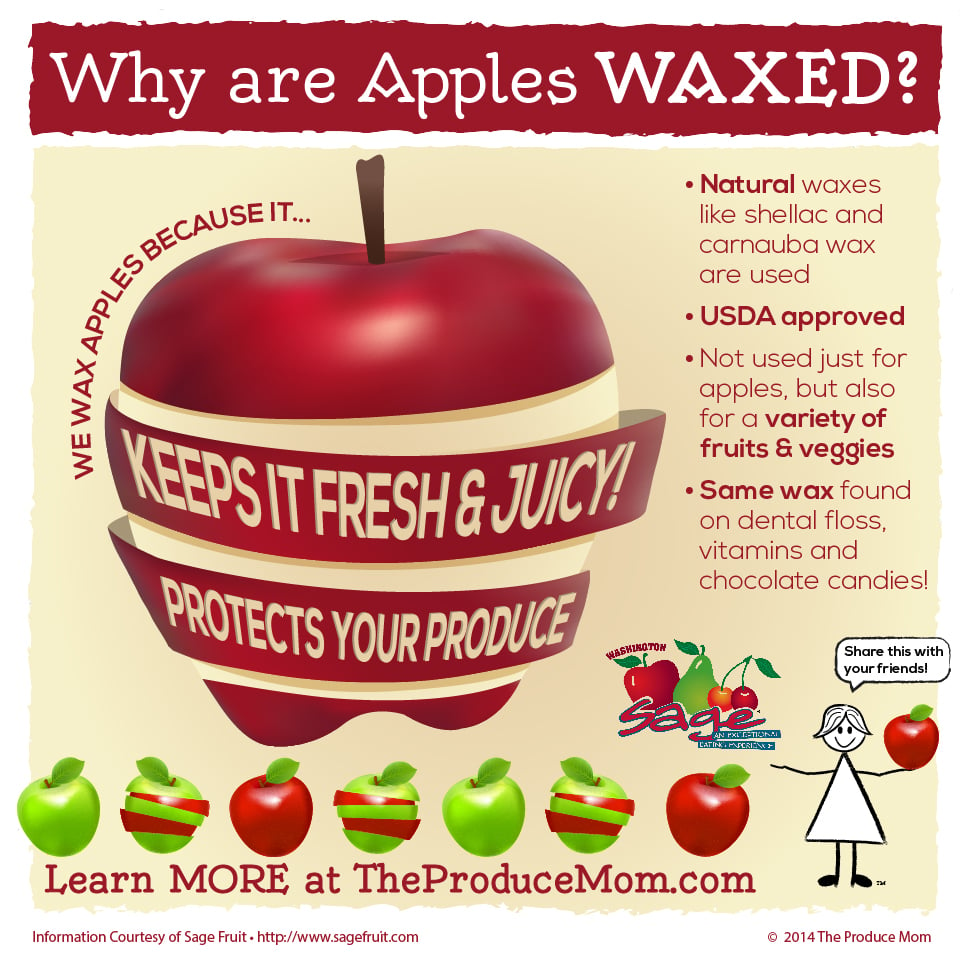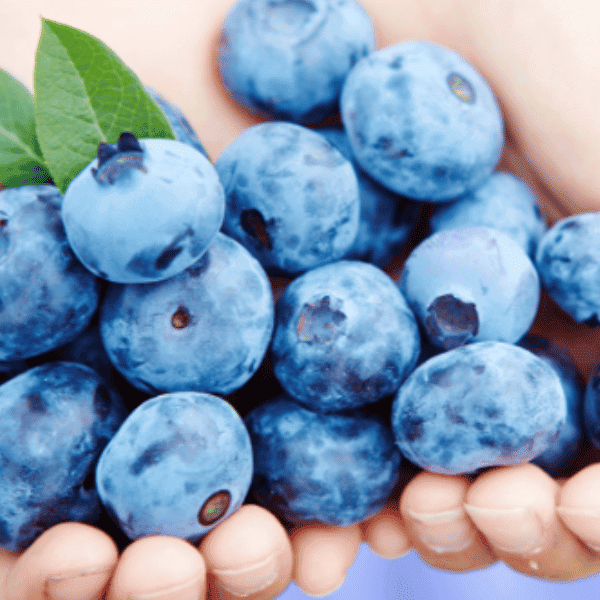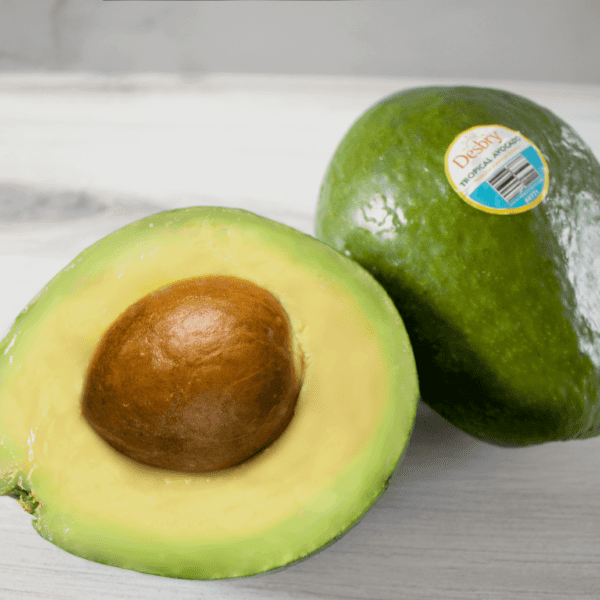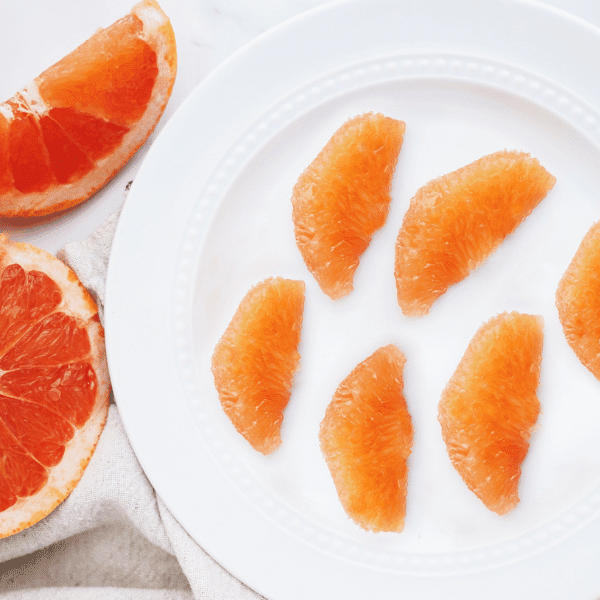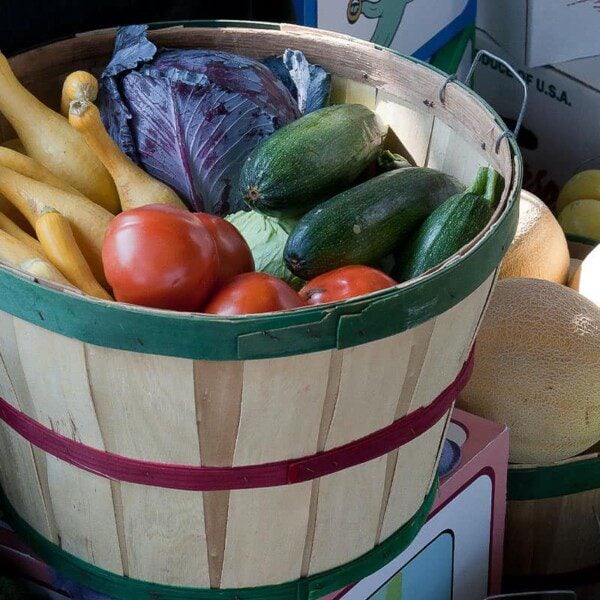Top 5 Produce Myths
Apr 10, 2015, Updated Jun 08, 2021
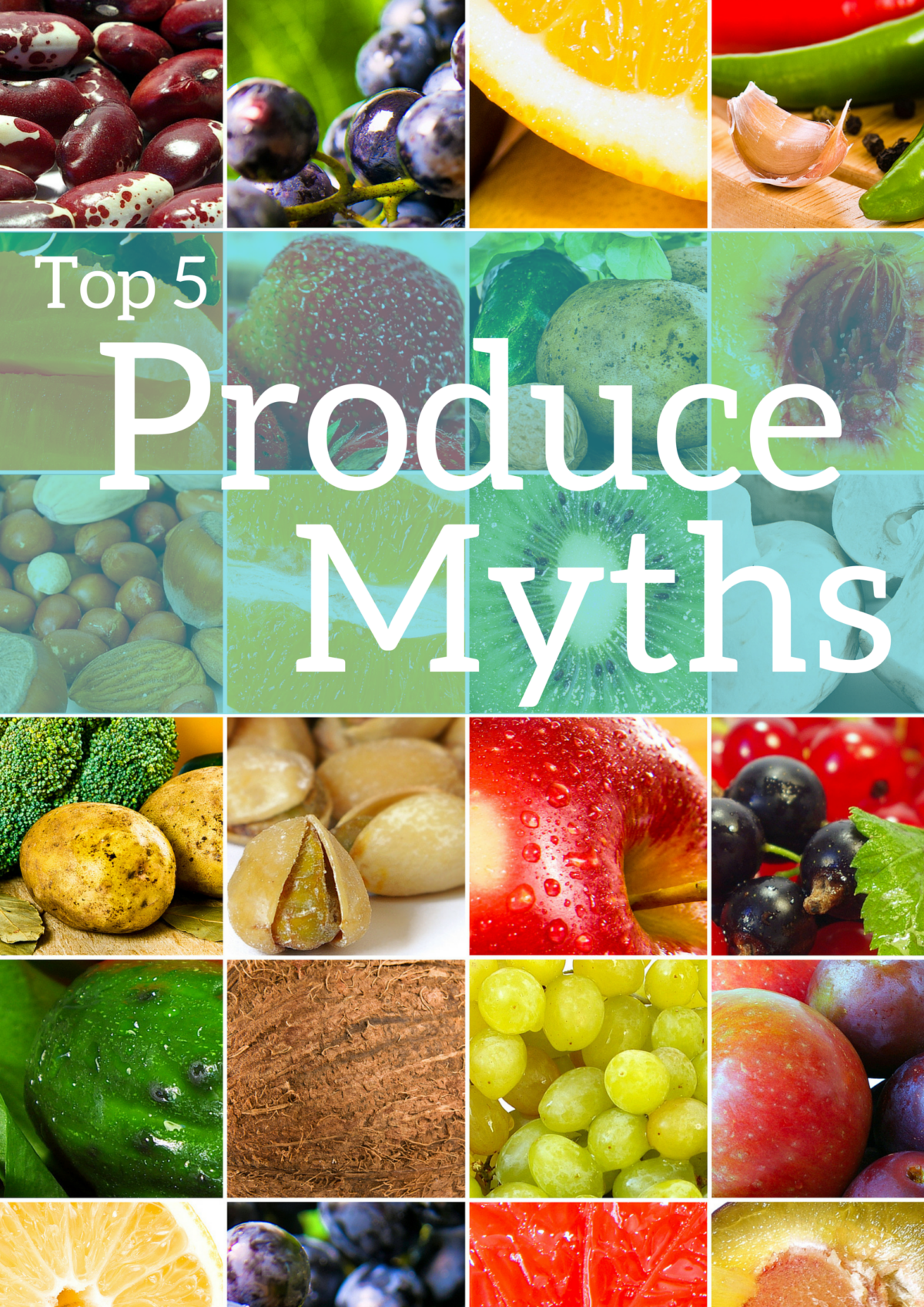
This post may contain affiliate links. Please read our disclosure policy.
Have you ever heard the saying, “rumors spread like wild fire”? Even in the produce industry, rumors lead consumers to be falsely informed. The Produce Mom is dedicated to answering questions in a factual manner & citing our sources. The following 5 produce myths are the most popular inquiries that we receive on our social media pages. As always, feel free to message, comment or tweet us your questions surrounding fresh produce! We will always answer your questions with facts. We will also lean on The Produce Mom Family of Partners to gain perspective and insight from the farmers who are working tirelessly to grow fruits and vegetables for our families.
Myth #1: Organic produce is healthier
There is no scientific evidence that proves this to be true.
So why choose organic fruits & vegetables?
“Organic agriculture is a system of farming practices that seeks to use ecological methods of production. Its goal is to learn from and mimic natural processes in order to produce the food we eat while also allowing our farmers to be better stewards of the land. Unlike words such as “natural” or “healthy” which you may see on product labels, Organic is a legally defined and monitored production method for farms and agricultural products.”
— Viva Tierra Organic
“Organic produce has the good things you want for your body — vitamins, minerals, phytonutrients, antioxidants, fiber — without the chemical residues that you don’t. Which makes it better for you…and for the Earth, too.”
— Earthbound Farm
“We’re in this for the long haul, and that means farming in harmony with the environment—preserving the land, the lifeblood of our farm…for us, being organic is important but sustainability goes further.”
— Josie’s Organics
I eat both conventional & organic produce. I serve my children both conventional & organic produce. I believe that all produce is good for you! Have confidence in your decision to serve your family fruits and vegetables. Our industry continues to expand the availability and farm acerage that is dedicated to growing USDA Certified Organic fruits & vegetables. It’s important that you & I have the opportunity to choose the type of produce that is best for our families.
Myth #2: Cooking vegetables eliminates all nutritional value
Some (not all) of the nutritional value in vegetables is lost during the cooking process.
Why does this happen?
Vegetables are packed FULL of vitamins, which are essential for our overall diet and the chemical reactions within our bodies. Vitamins are split up into two different groups: water-soluble (B-complexes, and C) and fat-soluble (A, D, E, and K). During the cooking process, water-soluble vitamins are more likely to be destroyed. However, the veggies containing more of the fat-soluble vitamins will be the veggies that lose the least nutritional value. By eating a variety of vegetables, you can ensure you are consuming adequate amounts of all vitamins!
Learn more about what happens to vegetables when cooked here.
Myth #3: Fresh fruit and vegetables are better than frozen fruit and vegetables
Frozen vegetables are typically just as nutrient-rich as raw vegetables.
So are my frozen vegetables “fresh?”
Frozen vegetables are often frozen the day of or day after they are harvested, which preserves their nutrients. While fresh produce may be more appealing, frozen produce is great to keep in your freezer. Remember what we have said before: Fresh, Frozen, Dried, Canned & 100% Juice. All forms count & MORE MATTERS! I often will stock up on berries when they are on sale & store them in my freezer. Frozen fruits & vegetables are perfect for a nutrient-dense breakfast smoothie!
Myth #4: The wax on apples should not be consumed
The wax used on apples & other foods is all-natural and safe for consumption.
If you are wondering why apples are waxed in the first place, it is solely to protect this delicious produce pick! The wax helps to limit water loss & reduce the apple’s exposure to pathogens. Many of our favorite foods also contain this waxy substance, which causes us absolutely no harm! Did you know vitamins, M&Ms, and dental floss also contain wax? (You learn something new every day) So keep on enjoying your favorite products because the USDA/FDA regulates the waxes we consume on a daily basis!
“Waxes have actually been used on fruits and vegetables since the 1920s. They’re made from natural ingredients and certified by the U.S. Food and Drug Administration (FDA) as safe to eat. They come from natural sources including carnauba wax from the leaves of a Brazilian palm; candelilla wax, derived from reed−like desert plants; and food−grade shellac, which comes from a secretion of the lac bug found in India and Pakistan.”
— Wendy Brannen, USApple
Myth #5: All produce varieties should be stored in the refrigerator
Not at all fruit & vegetable varieties require refrigeration.
Produce should be stored in a specific location in order for the fruit or veggie to develop its optimal flavor. Some varieties such as apples, asparagus, bell peppers, berries and all pre-cut produce items should be refrigerated. However, bananas, potatoes, tomatoes, and onions are just a few of the varieties that do not require refrigeration. By storing your produce in the perfect temperature condition, you not only produce a delicious flavored fruit/veggie, you can also extend the shelf life of the product!
The good news is that if you mess up & refrigerate an item that is not ideally stored in refrigeration, you will not ruin its nutritional value or risk food safety issues. For example, if you refrigerate a tomato, the tomato will lose some of its flavor and its firm texture. However, the tomato will still be nutrient-dense & safe to eat.
I’m actually working on a blog series & an infographic to help you understand where specific fruits and vegetables should be stored in your home kitchen. I also recommend the USDA Foodkeeper app! I just downloaded it – I think you will enjoy! Very practical & easy-to-use.
Do you have a produce myth that needs busted? Share in the comments below!
References
Myth #1: Are Organic Foods Safer or Healthier Than Conventional Alternatives?: A Systematic Review.” Annals of Internal Medicine. N.p., 4 Sept. 2012. Web. 10 Apr. 2015.
Dangour, Alan D, Karen Lock, Arabella Hayter. “Nutrition-related Health Effects of Organic Foods: A Systematic Review.” The American Journal of Clinical Nutrition. Web. 10 Apr. 2015.
“Food Label Helps Consumers Make Healthier Choices.” FDA. N.p., 27 Mar. 2008. Web. 10 Apr. 2015.
“Organic Foods: Are They Safer? More Nutritious?” Mayo Clinic. N.p., 9 June 2014. Web. 10 Apr. 2015.
Myth #2: Miglio, Cristiana, Emma Chiavaro, Attilio Visconti, Vincenzo Fogliano, and Nicoletta Pellegrini. “Effects of Different Cooking Methods on Nutritional and Physicochemical Characteristics of Selected Vegetables.” ACS Publications. Journal of Agricultural and Food Chemistry, 9 Jan. 2008. Web. 10 Apr. 2015. Subramanian, Sushma. “Fact or Fiction: Raw Veggies Are Healthier than Cooked Ones.” Scientific American Global. N.p., 31 Mar. 2009. Web. 10 Apr. 2015.
Myth #3: Roberta, Duyff. “Frozen Foods: Convenient and Nutritious.” Eat Right. n.p., 14 Feb. 2014. Web. 10 Apr. 2015.
“Frozen Fruit: Nutrition . Selection . Storage.” Fruits Veggies More Matters. n.p. Web. 10 Apr. 2015.
Myth #4: “Waxing.” Washington State Apple Commission. n.p. Web. 10 Apr. 2015.
Myth #5: Bernstein, Christopher. “New USDA ‘FoodKeeper’ App: Your New Tool for Smart Food Storage.” New USDA ‘FoodKeeper’ App: Your New Tool for Smart Food Storage. N.p., 1 Apr. 2015. Web. 10 Apr. 2015.
